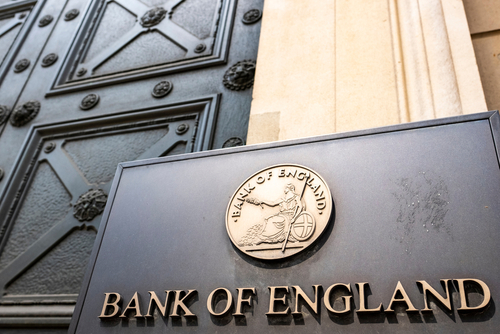

This article is only available to Macro Hive subscribers. Sign-up to receive world-class macro analysis with a daily curated newsletter, podcast, original content from award-winning researchers, cross market strategy, equity insights, trade ideas, crypto flow frameworks, academic paper summaries, explanation and analysis of market-moving events, community investor chat room, and more.
Summary
- Core and services inflation rose to 3.6% YoY and 5.6% in August. And while core now sits above BoE forecasts (3.4%), services inflation remains below.
- Meanwhile, wage growth is decelerating too slowly to force the BoE into a September rate cut.
- Assuming the BoE maintains a monthly pace of £100bn for balance sheet reduction, active bond sales could fall to £13bn.
Market Implications
- We expect the BoE to remain on hold, with the next cut taking place in November. We continue to expect two further cuts this year.
- We remain long gilts, targeting 3.5% in the 10Y yield.
Wage Disinflation Continues Slowly, Underlying Services Inflation More Promising
Last month, we argued dovish data was required for a September rate cut. Incoming data has since been mixed – not soft enough to force the BoE’s hand.
First, August inflation aligned with consensus expectations. Headline remained at 2.2% YoY, while core and services rose to 3.6% and 5.6%. While core now sits above BoE forecasts (3.4%), services inflation remains below. Moreover, services momentum – once you exclude indexed and volatile components, as well as rents and foreign travel – continued to decline. Finally, our wage-intensive services measure showed easing inflationary pressures for the second consecutive month, chiefly driven by accommodation services.
This outturn points towards continued disinflation in the coming months, which should open the door to a December cut.
Second, wage disinflation continues, but slowly. Regular pay growth in the private sector, the BoE’s preferred measure, slowed to 4.9% YoY in July from 5.0%. This outturn ensures wage gains remain within the August MPR’s 4.8% YoY forecast for the quarter. Regular wage growth in the whole economy also slowed, rising 5.1% YoY from 5.4%.
However, the PAYE median measure of wages was less favourable, rising to 5.2% YoY (3mma) from 5.1% last month. Adding to the mixed signals was a further decline in the unemployment rate, while the timelier measure of employment, the PAYE survey, showed a 59k decline in monthly payrolls for August from a 6k decline last month.
For tomorrow, we think the BoE’s focus will be on the overall direction of wage growth, which remains downward.
Finally, UK monthly GDP data showed a flatlining economy in July for the second month in a row. Service sector growth bounced back and grew 0.1% MoM, after declining by a similar amount in June. Similarly, production and construction became a net drag on growth, falling 0.1% combined, after rising 0.1% the month before.
The headline is that the UK economy may be slowing after solid growth in Q1 and Q2.
Combined, these data should mean the BoE remains on hold with at least 2 voters dissenting. However, this could rise to 3 if Alan Taylor also votes for a cut, but less is known about his voting preferences thus far. Going forward, we think this meeting sets up the prospect of a November cut, with a less defined cutting path ahead.
Fewer Active Gilt Sales
Since 2023, the BoE has maintained a £100bn reduction pace driven by £55bn maturing and £45bn sales. We think this will continue.
To retain the drop of £100bn seen in the 12 months to September 2024, the BoE need only sell £13bn of its holdings. We consider this the likely lower bound of the possible active gilt sales. We think the upper bound would be to sustain the £45bn pa pace of sales.
Viresh Kanabar is an investment strategist with 8+ years of experience, notably contributing to portfolio construction and risk management at CCLA Investment Management, a £12 billion fund. Viresh was also a voting member of the Investment Committee and ran the private asset valuation process.
Ben Ford is a Researcher at Macro Hive. Benjamin studied BSc Financial Mathematics at Cardiff University and MSc Finance at Cass Business School, his dissertations were on the tails of GARCH volatility models, and foreign exchange investment strategies during crises, respectively.
